LOCAL author, historian and publisher Chris Barber has revealed this week that for the first time in many years, Alexander Cordell’s famous novel Rape of the Fair Country, is now back in print and available in local book shops.
The unforgettable novel with its strong themes first attracted Chris Barber when it was first published in 1959 and he loved it so much it led to him deciding to buy his first house in the area where it is set.
Based in and about Monmouthshire and the top of the Welsh valleys, the book is set in the turbulent times of the Industrial Revolution during the 19th century.
It is enriched with drama, humour, sadness, romance and historical fact, culminating in the Chartists’ uprising and their historic march on Newport in November 1839.
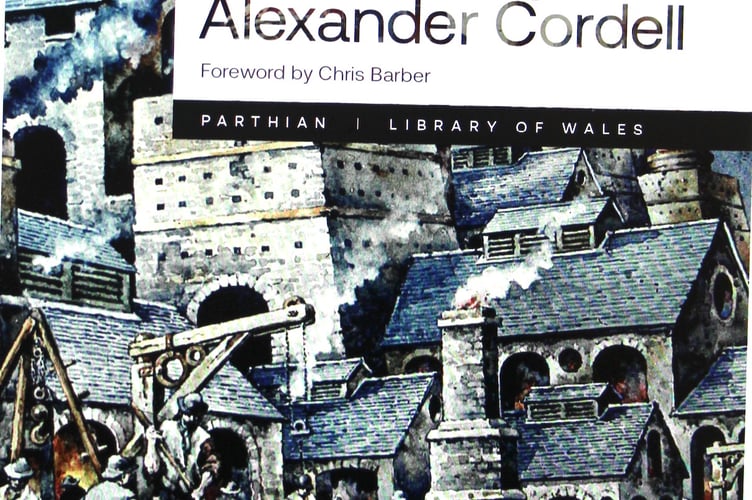
It was the book which launched Alexander Cordell as a best selling author and has been translated into no less than 17 languages and sold millions of copies around the world.
Cordell was born in Ceylon (now Sri Lanka) on November 9, 1914, the son of a Regimental Sergeant Major in the Royal Engineers, and he followed his father into the Army in 1932, when he joined the Royal Engineers, serving in the ranks .
With the outbreak of WWII in 1939 he was recalled to the Army and rose to the rank of Sergeant before being sent to France. During the British Expeditionary Force’s retreat from Boulogne in 1940, he was seriously injured when hit by a bullet in the hip and evacuated back to Britain.
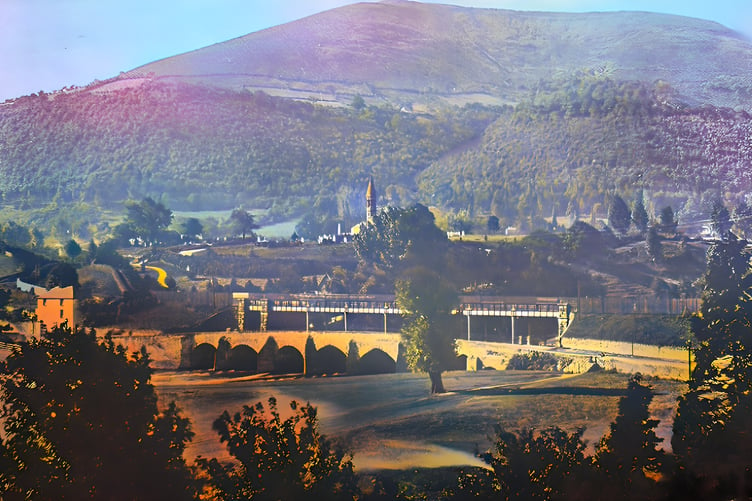
His convalescence was spent at Harlech in North Wales where he developed a love and fascination for the country and its people.
He decided that one day, he would like to live somewhere in Wales. When he recovered, he was commissioned as an officer and worked on the development of new weapons that would be needed in the D-Day landings and given the rank of major.
After being demobbed, Cordell was employed as a quantity surveyor with the Ministry of Public Buildings and Works in Shrewsbury.
When in 1950, a vacancy arose in Monmouthshire he enthusiastically volunteered to be transferred to an office in Abergavenny.
Initially he rented a cottage in Llanellen and it was there that he began writing short stories in his spare time to make some extra money.
They were published under his real name – George Alexander Graber and sometimes Major George Graber.
His first novel, A Thought of Honour, based on his war experiences was published in 1954, under the pseudonym Alexander Cordell, after a name change was suggested by his publisher who considered Graber too Germanic with the war still a recent memory.
Sadly for Cordell, the book did not sell very well, with one reviewer suggesting that perhaps he should write a novel about Wales, its customs and its peoples.
These were certainly prophetic words, for in the summer of 1957, Cordell was riding his motor bike up the side of the Blorenge on the road to Blaenavon and captivated by the dramatic view, when he stopped to look down on the Usk Valley and became puzzled by the sight of the vast swathes of black material scarring the hillside below him.
Seeing a postman pushing his bicycle up the road, he asked what had happened at this location. With much feeling, the man replied that the land had been ‘raped’ by industry, pointing out that below the spot where they stood was the site of an ironworks and a village called Garnddyrus where iron workers and their families once lived.
Cordell then followed the narrow track down the mountain to reach the remains of the deserted village. He stood before the rusted grates of tumble-down cottages; touched scraps of wallpaper and tried to recapture the life of this village that had died. It was called Garnddyrys and was once a thriving community, a little town of people on the edge of a golden valley.
Standing in the middle of the ruins he realised there was a fascinating story to be told of the people who lived and worked there during the Industrial Revolution, and back at his desk he set on on an intensive programme of research, which involved many hours talking to the older residents of Blaenavon, many of whom had been born in the 1870s, with their memories helping him relate to the iron-making stories of their forefathers.
In later years Cordell commented: “I wrote the book at white heat, scarcely altering a chapter; in between spells of writing I studied at the University of Wales, Aberystwyth, and befriended every available librarian; more, I suddenly discovered that hand in hand with the tale of Blaenavon and Nantyglo, went the last bloody revolution in Britain, the Chartist Rebellion.
“This took place when men like John Frost, a hundred years before their time, fought and suffered for the Six Point Charter – five of which we enjoy today in freedom.”
Prior to publication by Victor Gollancz, proof copies of the book were sent out to some well known writers and politicians for comment. The novelist Jack Jones remarked: “Books like this only come once in a lifetime and in this book there is a vitality that I have found in very few books”.
The Labour politician and founder of the National Health Service Aneurin Bevan gave it very warm approval: “It is a tremendous book, an exciting book – I shall be astonished if this novel is not universally regarded as one of the outstanding literary events of the year.”
Within a week of publication Rape of the Fair Country had appeared on the London best-seller lists, rising rapidly to the top and remained there for several weeks.
The Western Mail acquired the serial rights and published no less than 13 extracts. The novel went into Book Clubs from Britain to South Africa and was published in America under the clumsier title The Rape of the Fair Country, supposedly to avoid confusion for anyone misunderstanding what was meant by the word ‘rape’.
Published in 1940, the most famous novel set in South Wales at the time was Richard Llewellyn’s How Green was my Valley , which relates to the coal industry.
Its popularity was boosted by a moving film made in America with only one Welshman in the cast, who had been included to coach the other actors struggling to speak with Welsh accents.
Today, it is generally agreed that Richard Llewelyn’s book has been surpassed by Cordell’s exciting novel, and one reviewer even commented that “he has filled his pages with a wild Welsh poetry as authentic as anything Dylan Thomas ever wrote”.
In 1985, Chris Barber published his book Cordell Country which described the area around Blaenavon where Rape of the Fair Country is set.
Its purpose was to pay tribute to the literary achievements of Alexander Cordell and encourage visitors to visit the area and walk in the footsteps of his larger than life characters and at the same time sample the beautiful scenery in which it is set.
Fifty years later, this area is well established as ‘Cordell Country’ which is a fitting memorial to the author and his work.
“I feel very privileged to have personally known Alexander Cordell, for we undertook many research trips for his novel This Proud and Savage Land, which on my suggestion, was written in 1985 as a prelude to Rape of the Fair Country,” explains Chris.
One day, he told me: ‘I was never really happy until I came to Wales and in the Welsh people I have found a frankness, a friendliness, hospitality and industry’ - Alex was an Englishman who really wanted to be a Welshman, and even boasted that he had a Welsh-speaking grandmother who was born in the Rhondda Valley,” he added.
Despite the passing of the years, Cordell’s trilogy of Rape of the Fair Country, The Hosts of Rebecca and Song of the Earth endure and have been adapted in a series of plays performed at major Welsh theatres.
Rape of the Fair Country has also been performed as a four-part BBC radio play and as a musical by two separate companies.
Alexander Cordell died in 1997 at the age of 82 and public figures across Wales rushed to pay tribute
“When I was interviewed by Penny Roberts, Chief Reporter for BBC Wales about my friendship with Alexander Cordell, I commented: ‘He was an exceptional writer who had the ability to make the reader feel that his fictional characters had actually existed. He lived for nothing but writing and was never content unless he was working on a book. His enthralling set of novels will undoubtedly ensure that he will live in our minds through the characters that he created over his many years of industrious achievement,” said Chris.
Paul Flynn MP for Newport West warmly remarked: “My generation had our politics shaped by Alex’s accounts of the cruelty and heroism of the lives of past working class people of South Wales. His vivid writing inspired the outrage we continue to feel, about the injustices meted out to our ancestors. He is genuinely irreplaceable and we all owe him a debt of gratitude.”
Alexander Cordell’s ashes were buried in the cemetery at Llanfoist, alongside the remains of his two wives, and appropriately within sight of the Blorenge Mountain, which will always be associated with his most famous novel.
“When Alexander died, all his novels went out of print as a result of the demise of Robert Maxwell’s publishing empire. People were ringing me up asking how they could obtain a copy of Rape of the Fair Country, so I decided to do something about the situation and obtained an agreement with his literary agent which enabled me to republish it through my own small company, Blorenge Books, in 1998,” said Chris.
“When David O’Leary, the literary agent for Alexander passed away, I was asked by Cordell’s daughter who lives in Finland to take on the responsibility for his literary works and in due course I republished six of his novels. Rape of the Fair Country was reprinted several times
“In 2014, all 30 of his novels were republished in e-book format by Hodder & Stoughton. This was particularly appropriate for it was the 100th anniversary of the birth of Alexander Cordell. Audio books of Rape of the Fair Country and The Hosts of Rebecca were also produced by the Blaenavon-born actor Matt Addis and are still available from Amazon,” said Chris.
“Rape of the Fair Country has now been out of print for about 12 years and because the popularity and fame of Alexander Cordell is not familiar to recent generations, it has become necessary to restate the importance of this exciting novel in order to introduce it to a new readership.
“There are also a large number of people who bought the book years ago and foolishly loaned it to ‘friends’ who failed to return it, and I have no doubt that they will be delighted to hear that it is now back in print, which means that they can enjoy reading it once again,” said Chris.
“I decided that being such a famous book, it has become one of the classic novels of Wales and arranged for it to be republished by Parthian Books in their ‘Library of Wales’ series. This series was launched in Spring 2006, with the intention that all of the rich and extensive literature in Wales that has been written in English will available to readers in and beyond Wales.”
Rape of the Fair Country was re-published on November 1 and has already been named as Waterstones ‘Book of the Month’.
It is available in local bookshops with a cover price of £10.99 alongside Cordell’s other novels Hosts of Rebecca, Song of the Earth and This Proud and Savage Land.
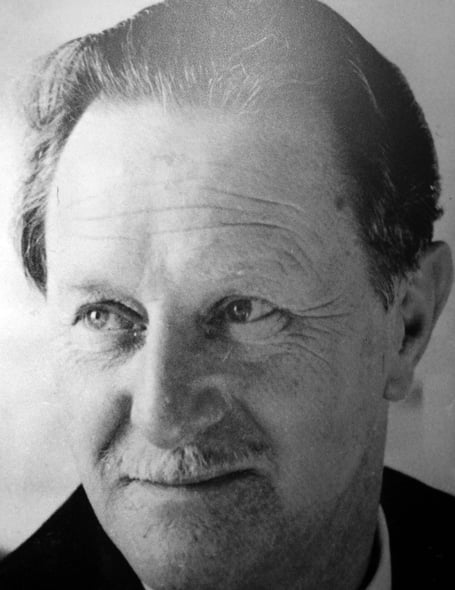


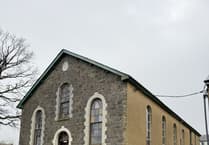
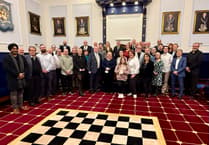
Comments
This article has no comments yet. Be the first to leave a comment.